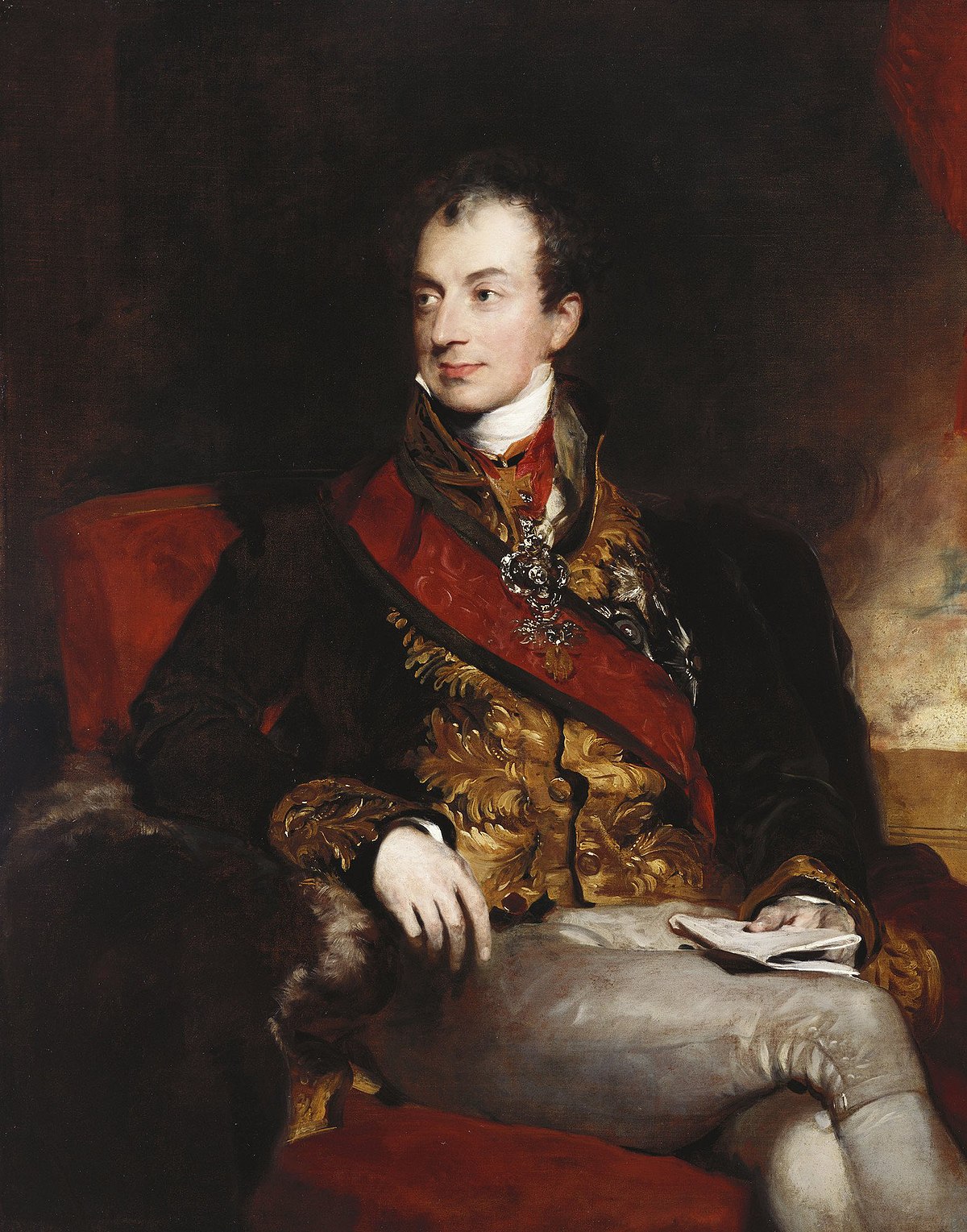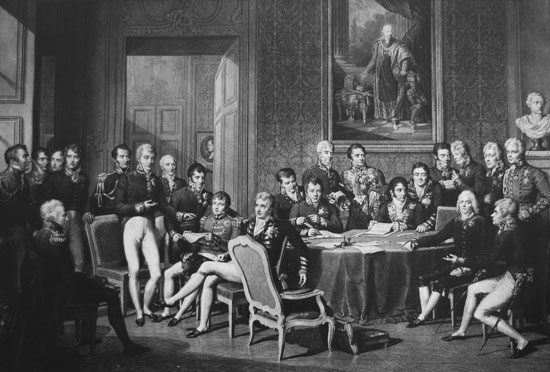Date: October 8th, 2023
As evident from the previous blogs, European history was nothing short of chaotic. Revolutions erupted at every opportunity, and countless wars were waged over political and religious disputes, making stability a rare commodity. At the time, political stability was rarely a top priority for leaders, but Klemens von Metternich stood apart in this regard. This leads me to….
On this day 214 years ago, Klemens von Metternich was named foreign minister of Austria.
Klemens von Metternich served as Austria’s minister of foreign affairs for four decades. He not only wielded significant governmental power but also held a considerable influence over both the government and the public. His reputation extended far beyond his job description, as he ultimately stood as the symbol of 19th century European conservatism.
considerable influence over both the government and the public. His reputation extended far beyond his job description, as he ultimately stood as the symbol of 19th century European conservatism.
Unlike his counterparts, Metternich placed a central emphasis on achieving political stability for Austria. This commitment fueled many of his political decisions, policies, and actions throughout his political career.
He firmly opposed the concept of democracy, believing that it would only weaken Europe and lead to countless revolutions and unnecessary wars. Instead, he advocated for strong, central governments as the only means to ensure enduring prosperity and peace. He argued for the need of organized religion within Austria and harshly scrutinized liberal nationalist movements due to their inherent danger. Many of his political stances were heavily influenced by the state of Europe during his adolescence and early political career. This time was marked by revolutions sweeping across Europe and countless wars fought in a continual struggle for control. Thus, in the eyes of Metternich, stability in politics and government could only be achieved through a centralized monarchy ruling over the citizens with a firm hand.
His political savvy was evident in his ability to anticipate issues with other nations or defuse rising tensions before they escalated. This is particularly exemplified in his handling of the unpredictable ruling of Napoleon Bonaparte. Recognizing that Austria’s army would be no match for Napoleon’s on the battlefield, Metternich knew that he must gain the upper hand some other way. Thus, he arranged the meeting of Napoleon and the Austrian emperor’s daughter. Months later, the two were married, securing Austria protection and peace during the Napoleonic Wars.
Beyond that, Metternich’s most significant achievement was his orchestration of the Congress of Vienna. The Congress of Vienna, a conference between France, Britain, Austria, Prussia, and Russia, aimed to restore the legitimacy of monarchies and the balance of power to Europe after the disruptive Napoleonic Wars. He persuaded leaders to consider political and economic power in novel ways, going beyond the surface-level desires of gaining more land or money. His moderation during the congress produced a long-lasting order in Europe and its success can largely be attributed “to his diplomatic capability rather than… his political foresight” (“Klemens von Metternich”).
balance of power to Europe after the disruptive Napoleonic Wars. He persuaded leaders to consider political and economic power in novel ways, going beyond the surface-level desires of gaining more land or money. His moderation during the congress produced a long-lasting order in Europe and its success can largely be attributed “to his diplomatic capability rather than… his political foresight” (“Klemens von Metternich”).
Ultimately, through his political prowess, Metternich restored Austria as a leading European power with prosperous times to come.
Source
Otmar, Karl, and Baron von Aretin. “Leadership of the Congress of Vienna of Klemens von Metternich.” Britannica, Encyclopædia Britannica, inc., 2023, www.britannica.com.

Kai Liu
This was a really interesting read since Klemens von Metternich was never specifically mentioned in my European history class back in high school. You did a really good job explaining his achievements and the context around them. I’m really not surprised that he was in opposition to democracy since this was the Napoleonic period of Europe, and I found it funny that he immediately knew France would crush Austria since this is about the third or fourth time that France had defeated Austria in war. I personally disagree with your last statement about Austria being restored as a leading European power though; the coalitions along with the rising power of Prussia in the late 1700s basically left Austria as a husk of its former power. Overall though I love this time period and enjoyed reading your take on history!